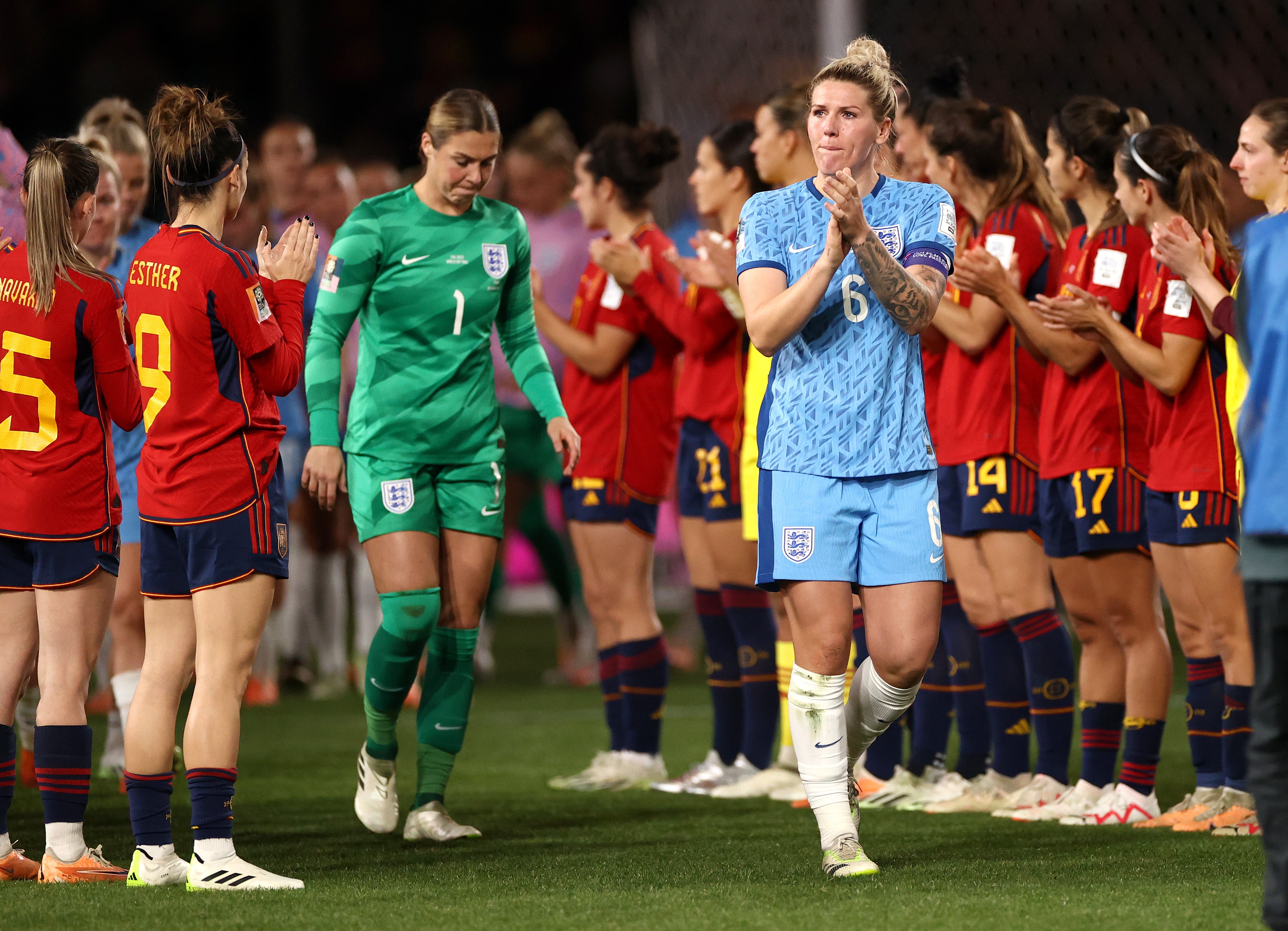No matter the outcome, England should be proud of its Lionesses
Editorial: The team was valiant and played with heart. Now it’s up to the government to ensure that young girls will be able to emulate their heroes in the future

Their narrow defeat in the Fifa Women’s World Cup final at the hands of a very good Spanish team should not detract from England’s brilliant performance in the competition. They proved remarkably resilient as they overcame setbacks – including injuries to key players before and during the tournament, a sending off, and a penalty shootout – before falling at the last hurdle.
The team brought the country together and reminded us that we have more in common than we sometimes realise. They played with smiles on their faces, and shared the joy of their achievements with their fans. Their camaraderie and humility are striking; they are without the egomania that afflicts some stars of the men’s game.
The nation should be proud of a group that, in reaching the final on foreign soil, in one sense went a step further than the England men who won the World Cup in 1966. They played their full part in a highly successful tournament in Australia and New Zealand, which saw more than a million fans watching in stadiums and more than a billion on television. It should prove to have been a transformational moment for the sport.
England’s performance is another big step on a long, arduous journey. The Football Association effectively banned women’s football through its infamous 1921 ruling that the game “is quite unsuitable for females”. It took campaigners 50 years to get the ban lifted.
Rewards and commercialisation in the women’s game have increased markedly since England reached the World Cup semi-finals in 2019. But there is still a long way to go: regrettably, Mary Earps, the England goalkeeper who performed heroically in Sunday’s final and won the Golden Glove award, has not yet won her battle for fans to be able to buy a shirt with her name on it.
England’s progress must now be a catalyst for parity between the men’s and women’s national teams. An unnecessary row over individual performance-based bonuses was not resolved before the competition. It is to the players’ credit that they did not let this distract them during what proved to be a much more difficult path to the final than when they won the Uefa European Championship on home turf last year.
Sarina Wiegman, England’s impressive, calm Dutch manager, is believed to be paid £400,000 a year, while Gareth Southgate nets £5m. The average annual salary in the top tier of English women’s football was about £26,000 last season, while in the Premier League it was more than £3m.
Old attitudes die hard, and there is still a worrying tendency among men to patronise the women’s game. This was epitomised on Friday when Gianni Infantino, the Fifa president, said women players should “pick the right battles” and that they have “the power to convince us men what we have to do”. Men should not need any convincing after this World Cup.
Similarly, the Prince of Wales, who is president of the FA, and Rishi Sunak failed to reflect the public mood when they declined to travel to Sydney for the final. Senior Conservative and Labour figures believe William and the prime minister would have made the trip if England’s men had reached a World Cup final.
Hopefully, England’s remarkable performance will help to put to bed the sexist “women are not that bad” jibes. The players are excellent role models, off as well as on the field. Some members of the squad are openly gay; in contrast, no man has come out as gay while playing in the Premier League.
The government owes it to the Lionesses to ensure that the £600m investment in equal access to school sport, announced by Mr Sunak in March, is more than just another headline-grabber with little follow-through. Worryingly, the FA’s latest figures show that only four in 10 schools offer girls equal access to football in PE lessons. There can be no more excuses for the failure to provide enough opportunities for girls who want to play the beautiful game.
More academies are needed to ensure that the most promising players reach their full potential. There must be more female coaches. No men’s team in England’s top four divisions is managed by a woman, and only 12 of the 32 women’s World Cup teams had a female coach.
Hopefully, England’s strong showing will result in a further boost to investment and sponsorship. There is a new audience to be tapped; only one in five spectators attending women’s games also watch men’s matches.
Wealthy clubs, football administrators and politicians must see to it that England’s wonderful run at the World Cup proves to have been a game-changer, by providing the fitting legacy the team fully deserves.






Join our commenting forum
Join thought-provoking conversations, follow other Independent readers and see their replies
Comments